Meet the scientists who contribute to the SPECIAL research group.
We are based in the Department of Geography and Environmental Science at the University of Reading.
Prof. Sandy P. Harrison
Professor in Global Palaeoclimates and Biogeochemical Cycles
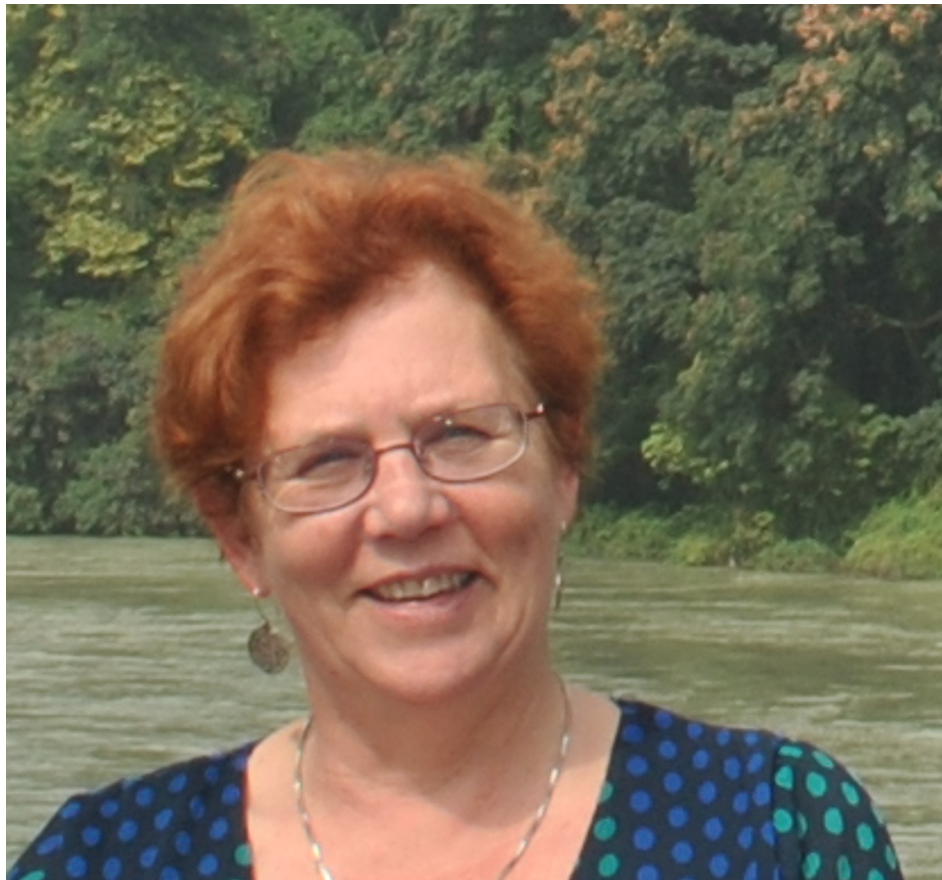 Sandy is a palaeoclimate diagnostician, using large-scale palaeoenvironmental data syntheses and various types of process-based models to study the interaction of climate and the terrestrial biosphere in the geologic past and the present day. The goal of her work is to use the mechanistic understanding of interactions developed under radically different climate of the past to improve our ability to predict the likely trajectory of future climate and environmental changes. As Co-Chair of the Palaeoclimate Modelling Intercomparison Project (PMIP) and as joint leader of the PMIP Data Working Group, she is committed to promoting the analysis and evaluation of the climate and earth-system models used for future projections. Sandy is a Co-Director of the Leverhulme Centre for Wildfires, Environment and Society, where she is actively promoting the use of palaeodata to explore the controls on fire regimes and for model evaluation. She is also leading a new international consortium (LEMONTREE) to build a next-generation model of the terrestrial biosphere and its interactions with the carbon cycle, water cycle and climate.
Sandy is a palaeoclimate diagnostician, using large-scale palaeoenvironmental data syntheses and various types of process-based models to study the interaction of climate and the terrestrial biosphere in the geologic past and the present day. The goal of her work is to use the mechanistic understanding of interactions developed under radically different climate of the past to improve our ability to predict the likely trajectory of future climate and environmental changes. As Co-Chair of the Palaeoclimate Modelling Intercomparison Project (PMIP) and as joint leader of the PMIP Data Working Group, she is committed to promoting the analysis and evaluation of the climate and earth-system models used for future projections. Sandy is a Co-Director of the Leverhulme Centre for Wildfires, Environment and Society, where she is actively promoting the use of palaeodata to explore the controls on fire regimes and for model evaluation. She is also leading a new international consortium (LEMONTREE) to build a next-generation model of the terrestrial biosphere and its interactions with the carbon cycle, water cycle and climate.
Email Orcid Research Gate Twitter
Olivia Haas
Postdoctoral Research Associate
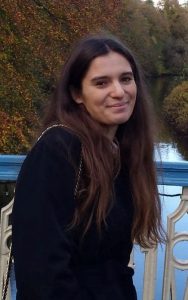
Olivia is a PDRA at the University of Reading and a member of the Leverhulme Centre for Wildfires, Environment and Society. Her primary interest is exploring the impact of CO2 on fire regimes and ecosystems in rapid warming events (notably the Dansgaard-Oeschger events). For her PhD, she worked towards building a global fire model that, coupled with a dynamic global vegetation model would allow for improved simulations and predictions of the effect of increasing atmospheric CO2 on the global fire regime and associated impacts on ecosystems. Notably, she is interested in exploring the potential for ecosystem shifts driven by fire disturbances.
Mengmeng Liu
Postdoctoral Research Associate
 Mengmeng focuses on Earth system feedbacks. Many feedbacks in the Earth systems are positive (not equal to “good”, just like covid), making warming warmer and cooling cooler, in other words, making things worse, thus very important when predicting future climate change. However, model values vary and previous constraints not very satisfying. Therefore, she used the past rapid warmings in the last glacial period, called Dansgaard–Oeschger events, to make new quantifications. She had successfully quantified the greenhouse-gas climate feedbacks, as well as the albedo feedbacks from vegetation effect, snow effect and their combined effect during her PhD study at Imperial College London. She will continue with fire feedback and dust feedback here as a postdoc.
Mengmeng focuses on Earth system feedbacks. Many feedbacks in the Earth systems are positive (not equal to “good”, just like covid), making warming warmer and cooling cooler, in other words, making things worse, thus very important when predicting future climate change. However, model values vary and previous constraints not very satisfying. Therefore, she used the past rapid warmings in the last glacial period, called Dansgaard–Oeschger events, to make new quantifications. She had successfully quantified the greenhouse-gas climate feedbacks, as well as the albedo feedbacks from vegetation effect, snow effect and their combined effect during her PhD study at Imperial College London. She will continue with fire feedback and dust feedback here as a postdoc.
Dominic Robson
Postdoctoral Research Associate
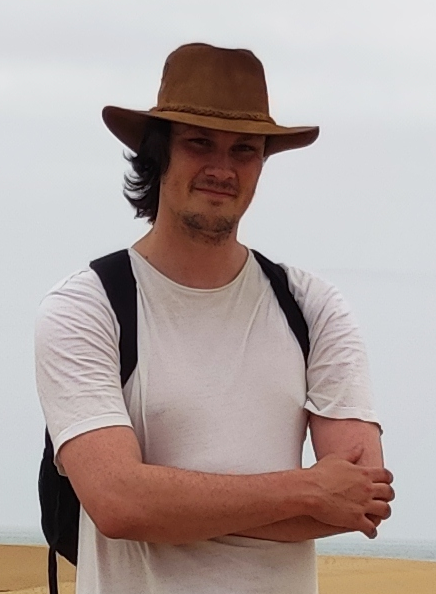 With a background in physics and mathematics, Dom turned his attention to the mathematical modelling of complex systems in Earth sciences, in particular aeolian geomorphology during his PhD. Continuing the trend of applying physical and mathematical techniques to problems in geography and environmental science, he is now working on modelling the migration of trees in response to a rapidly changing climate using paleo-records to constrain the parameters relevant to contemporary and future range shifts.
With a background in physics and mathematics, Dom turned his attention to the mathematical modelling of complex systems in Earth sciences, in particular aeolian geomorphology during his PhD. Continuing the trend of applying physical and mathematical techniques to problems in geography and environmental science, he is now working on modelling the migration of trees in response to a rapidly changing climate using paleo-records to constrain the parameters relevant to contemporary and future range shifts.
Giulia Mengoli
Postdoctoral Research Associate
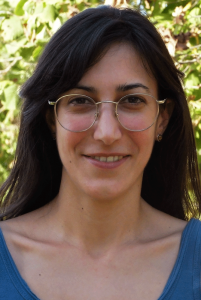
Giulia works at developing mathematical models to predict vegetation response to climate change. With a background in ecology and eco-physiological processes, she has a strong interest in how plant interact with their environment – and vice versa – and how these interactions can be translated into mathematical models and have an impact on the atmospheric composition.
She recently completed her PhD project at the Imperial College London, that is carried out in collaboration with the European Centre for Medium-Range Weather Forecasting (ECMWF) and the University of Reading. Her PhD work involved the deployment of a new ecosystem model that combines satellite observations with eco-evolutionary optimality theory to predict canopy-level conductance and improve medium-range weather forecasting.
Luke Sweeney
PhD Candidate
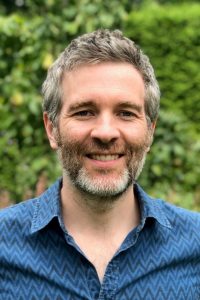
Luke’s research is focussed on investigating the effects of anthropogenic land-use change on fire regimes during the pre-industrial era, against the context of climate-driven changes. His work involves the analysis of charcoal-based records of paleofires, pollen-based information on changes in land cover, and archaeological data on population changes and land use during the Holocene, as well as analysis of existing climate and fire-enabled vegetation model simulations.
Luke will be working as part of the Leverhulme Centre for Wildfires, Environment and Society. As part of this PhD project, he is also hoping to design and implement new experiments with a fire-enabled vegetation model to test the impact of changing climate and LULC on fire regimes in the past.
Yicheng Shen
PhD Candidate
 Yicheng has graduated as a MRes student studying ecosystems and environmental change at Imperial College London. She is interested in the relationships between fire, vegetation, climate and human beings in the past time and also at present day. In her master’s project, she built a present-day GLM fire model to explore fire relationships and developed a novel method of palaeofire reconstructions.
Yicheng has graduated as a MRes student studying ecosystems and environmental change at Imperial College London. She is interested in the relationships between fire, vegetation, climate and human beings in the past time and also at present day. In her master’s project, she built a present-day GLM fire model to explore fire relationships and developed a novel method of palaeofire reconstructions.
Yicheng works as a research assistant in the SPECIAL group as part of the Leverhulme Centre for Wildfires, Environment and Society. Currently, she is focusing on the development of a new method to derive quantitative fire-vegetation relationships using pollen and modern charcoal with the help of Tolerance-Weighted Averaging Partial Least-Squares with sampling frequency correction (fxTWA-PLS) and a present-day GLM fire model. She has tested this approach using the Iberian Peninsula as a case study. This new method opens up the possibility of reconstructing changes in fire regimes quantitatively from pollen records, which are far more extensive than charcoal records. She will expand the study region and investigate palaeofire relationships using the reconstructed fire data in the future study.
Theo Keeping
PhD Candidate
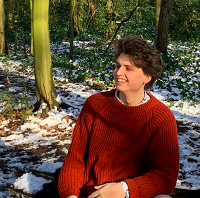
Theodore Keeping is a PhD student at University of Reading working under the supervision of Professors Sandy Harrison and Ted Shepherd at the University of Reading and Professor Colin Prentice at Imperial University.
Theodore’s work focusses on developing a fine resolution probabilistic model of wildfire likelihood, behaviour and impact across landscapes, with the goal of developing a probabilistic fire hazard model that can be integrated into current Dynamic Global Vegetation Models.
Wenyao Gan
PhD Candidate
 Wenyao Gan is a PhD student working under the supervision of Sandy Harrison and Pier Luigi Vidale at the University of Reading. Wenyao’s work will focus on implementing eco-evolutional optimality formulation of photosynthesis and primary production, dark respiration and stomatal behaviour within the JULES land surface model. Wenyao will also be comparing the model performance of the new formulations against existing version of JULES
Wenyao Gan is a PhD student working under the supervision of Sandy Harrison and Pier Luigi Vidale at the University of Reading. Wenyao’s work will focus on implementing eco-evolutional optimality formulation of photosynthesis and primary production, dark respiration and stomatal behaviour within the JULES land surface model. Wenyao will also be comparing the model performance of the new formulations against existing version of JULES
Georgina Tang
Research Assistant
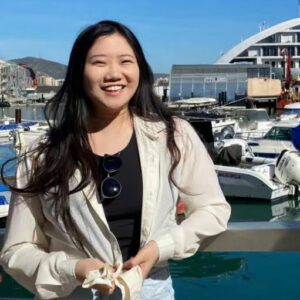
Minxue Tang (Georgina Tang) is a Research Assistant at the University of Reading under the supervision of Professor Sandy Harrison at the University of Reading and Professor Colin Prentice at Imperial College London. Georgina’s current work focuses on analysing past records of tree migration in response to climate changes using data sets, developing and testing a predictive model of tree migration, and implementing tree dynamics and migration in the framework of the P (optimality-based) model.
Jierong Zhao
Research Assistant
Jierong Zhao serves as a research assistant specialising in speleothem modelling. Her work is dedicated to elucidating evidence-based changes observed in speleothem records over time and exploring it related variations in climate forcing. With a bachelor’s degree in political economy from King’s College London and a MRes degree in Ecosystem and Environmental Change from Imperial College London, she employs an eco-evolutionary optimality principle to investigate terrestrial cycle functions under different CO2 levels within the realm of paleo-climate simulation.
Support Team
Mary-Ann Egbudom
Scientific Programmer and Database Manager
Sophia Cain
Science Coordinator
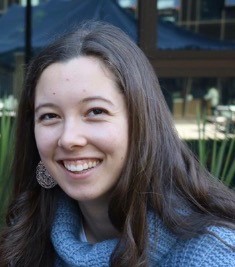
Sophia is the Science Coordinator for the SPECIAL Group. Sophia’s main responsibility’s are the coordination of the LEMONTREE project and research outputs within the fire-veg working groups of LEMONTREE and the Leverhulme Centre for Wildfire, Environment and Society. She is responsible for project administration, the communication strategy and assisting with implementation and research outputs across the SPECIAL group projects.
Sophia’s area of research is bushfire ecology, specifically, herbivore and plant interactions and environmental chemistry.
Associates
Dr. Esmeralda Cruz Silva

Esmeralda works with late Quaternary databases of pollen records at mid-latitudes. She uses this data to produce vegetation maps as a source of information about spatial dynamics of plant communities and climate through time.
Esmerelda completed her PhD in the group where she focused on reconstructing spatio-temporal changes of vegetation and climate in the Mediterranean region using Holocene pollen data from the EMBSeCBIO database, the European Pollen Database (EPD), the African Pollen Database (APD) and the Modern Pollen Data for Climate Reconstructions (SMPDS).
Group Alumni
Dr. Mark Turner
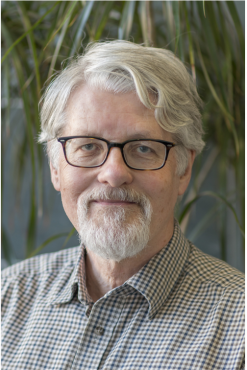
Mark examines rapid climate change and its effect on vegetation using pollen accumulations in lake sediments. He examines modern pollen assemblages and uses the relationships between pollen and climate to infer changes in climate variables through time.
His current work focuses on the last glacial (~20,000 years ago to ~120,000 years ago). During this time, there are at least 20 periods of rapid temperature increases (Dansgaard-Oeschger cycles) with similar rates of change to what the world is currently experiencing. Pollen assemblages in lake sediments reflect these changes, and the modern pollen-climate relationships may be used to quantitatively reconstruct climate changes during these events. This work helps in answering questions about the fate of vegetation under current and future climate change.

